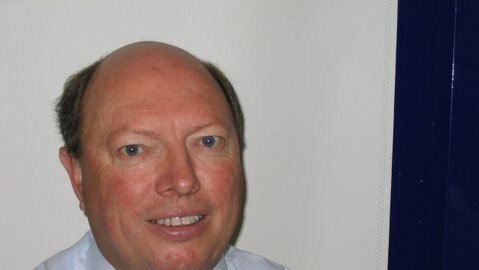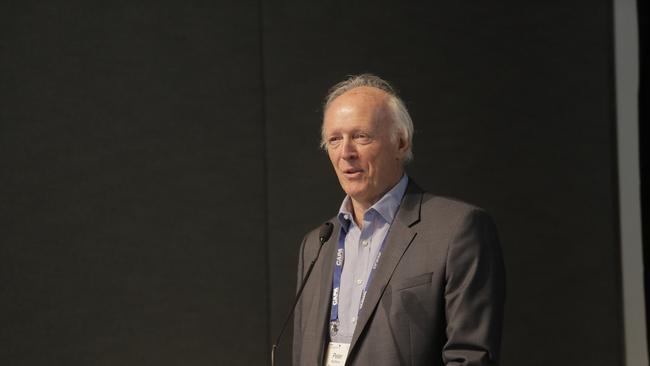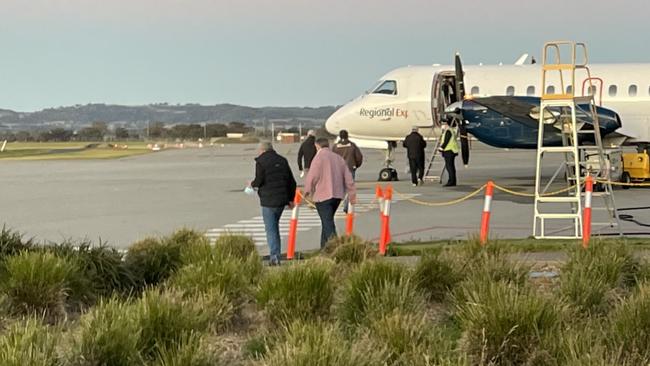‘David and Goliath’ battle between Rex and Qantas: expert
Qantas’ decision to suspend direct flights between Wagga and Melbourne from Monday has sparked a war of words between Rex Airlines and the national carrier, with one aviation expert coining it a “David and Goliath battle”.
The Wagga News
Don't miss out on the headlines from The Wagga News. Followed categories will be added to My News.
An aviation expert has called the recent war of words between Qantas and Regional Express Airlines (Rex) a “David and Goliath battle”.
It comes after Rex asked the nation’s competition watchdog, the Australian Competition and Consumer Commission (ACCC), to investigate Qantas after the national carrier withdrew from two regional routes.
Last week, Qantas announced it would suspend direct flights between Wagga and Melbourne from August 1 to March 2023, as well as cancel its services between Melbourne and Mount Gambier from August 15.
According to Qantas, the suspension of the Wagga flights was due to “aircraft availability” while the carrier stated that it was “no longer viable” to continue operating out of Mount Gambier.
Rex Deputy Chairman John Sharp said the regional airline had called for the ACCC investigation into what they see as “predatory business behaviour” from Qantas in regional areas.
He said Rex has long held concerns that Qantas was flooding regional airline markets to eliminate weaker regional competitors.
“Qantas wanted to punish us due to us poking into their territory, which then undermined regional markets, and this is why we want the ACCC to look into it,” Mr Sharp said.

In a statement issued by Rex last week, a spokesperson summed up the airline’s stance:
“Seeing that its predatory behaviour was not having the desired effect, Qantas now realises that its massive losses compounded by startling operational incompetence make it no longer sustainable to continue bleeding cash on these marginal regional routes,” the spokesperson stated.
“Rex predicts that the two recent exits will be followed by more exits from other marginal routes that Qantas entered purely with the intention of destabilising Rex in its traditional regional market as a punishment for entering the domestic market.”
Qantas hit back, with a spokesperson stating: “Rex’s claims are getting increasingly absurd, especially considering they have already been investigated by the ACCC who are taking no further action.”
Meantime the ACCC has said it would continue to monitor the airlines’ pricing behaviour and “look out for conduct that may harm competition to the detriment of consumers”.
However aviation expert, Strategic Aviation Solutions chairman Neil Hansford, believes that Rex’s push for an ACCC investigation into Qantas’ decisions, was a ploy to deflect from its own issues.
“Rex are world record holders in going to the ACCC for an excuse to blame their problems on Qantas or even the government,” Mr Hansford said. “It is no war, it is only a whimper and a David versus Goliath battle in which they won’t win.”
Mr Hansford said Rex flights from Sydney to Melbourne were only half full, meaning they were losing money in some of their regional services, the same as Qantas.
Meantime the company was dealing with staffing issues, after Rex pilots voted for industrial action on June 28 over pay negotiations which saw hundreds of employees vote for a swathe of industrial action measures.

Another aviation expert, Chairman Emeritus at CAPA Centre for Aviation Peter Harbison, also weighed in on the issues between the two airlines.
“It is a double-edged sword because Qantas knew they were losing money on routes like Wagga and Mount Gambier; they won’t tell us their losses but this is the situation that Qantas are in,” Mr Harbison said.
“If it was predatory then there is some argument to it but this is some payback from Rex after Qantas attacked them over moving into the larger domestic market.”
Mr Harbison said carriers in regional airline markets need to ensure services were “fair and reliable” to remain viable.
“It doesn’t matter if there are two or one airlines at Wagga for example, it needs people to be on those flights but also make it fair and reliable for all,” he said.
“When you start having cancellations of flights, especially regional flights, it could cause all sorts of problems and people will lose confidence and will drive to those destinations rather than flying.”

Mr Hansford also argued that Rex needed to upgrade its fleet from the Saab 340 to the French aerospace ATR 72 fleet, in order to be competitive with Qantas.
“Rex needs to invest into the ATR 72 than running with Saab 340’s which are outdated and old fashioned, but they do not want to invest $800 million to replace an already ageing fleet,” he said.
However Rex’s deputy chairman argued that these aircraft would be too costly due to high maintenance costs, and said the operator was looking for a greener solution to air travel.
“We at Rex know that the Saab 340’s are easy to maintain and if we transfer our fleet it will not be cost efficient due to high operational costs; we are also the best in the world in maintaining Saab aircraft,” Mr Sharp said.
“Electrical planes are the future and we have taken equity with Australian aviation start-up Dovetail Electric Aviation to develop technology which enables an electrical motor which powers through batteries and energy stored through hydrogen to replace fuel engines for the future.
“We will start to undertake trials in 2024 at Wagga and Narrandera airports once we know the 10 seaters are safe to operate.”

Mr Harbison said this was a good option but could receive public backlash.
“This is a good option and is really important on particular routes and will keep emissions down, but there will be public backlash and the big elephant in the room is ‘Will all airlines be able to have this by 2030 and be able to cope with it’ as we saw there is a lot public backlash around anything going green in today’s market,” he said.
However Mr Sharp was confident about moving toward a greener future.
“If we can prove it, for Rex it will see lower operational costs and by using these aircraft daily in the future it will give us a leg up on competition and we think the public will agree with it,” he said.
“... We have a higher on time performance better than Qantas and Virgin with 82 per cent while Qantas and Virgin are in the low 50s, we have less than one per cent of cancellations and we have top cabin and crew experience which make us a very good airline in the public eye,” he added.




